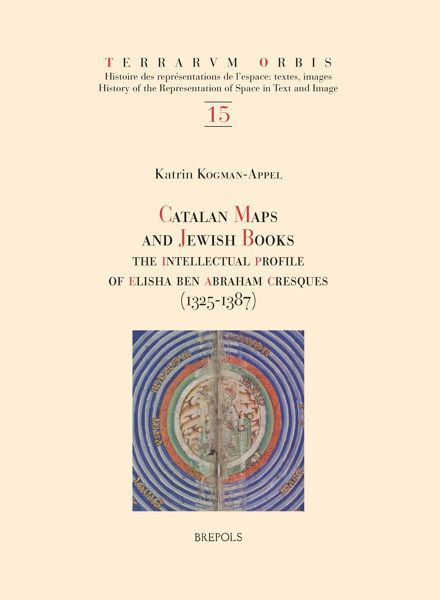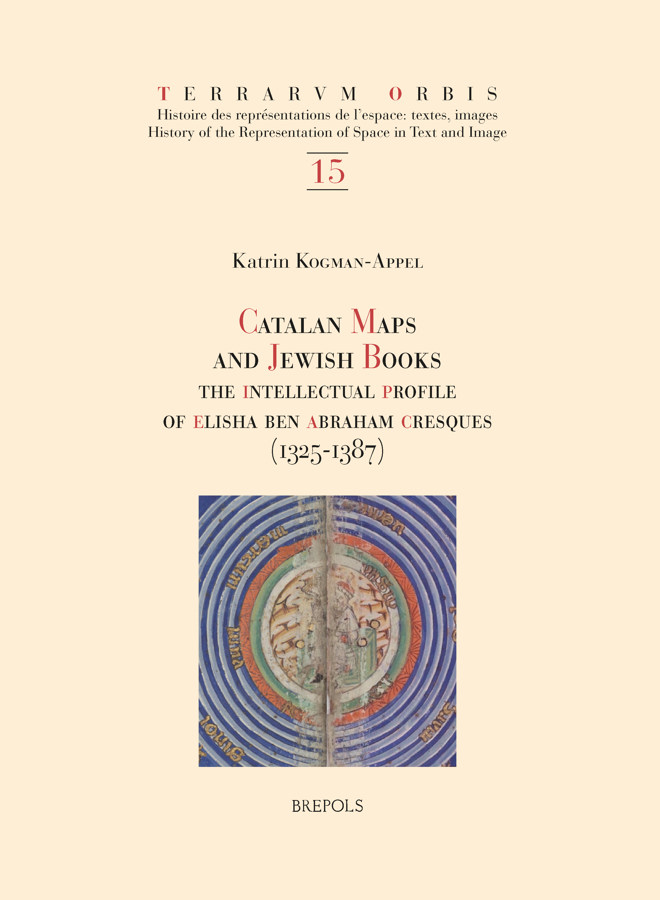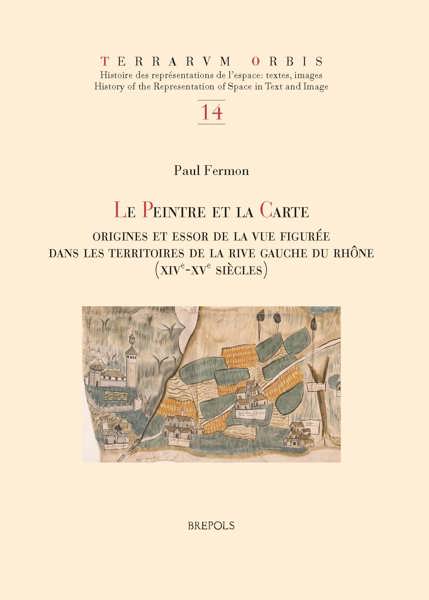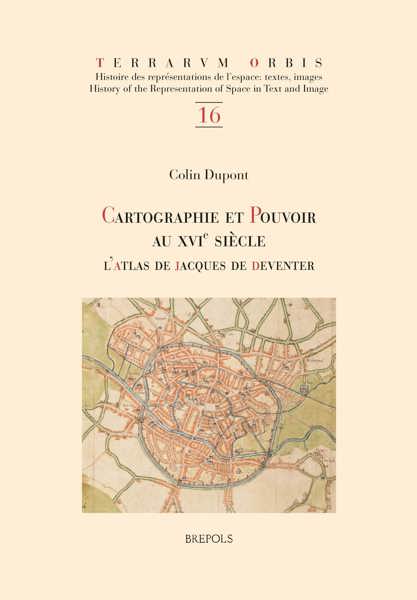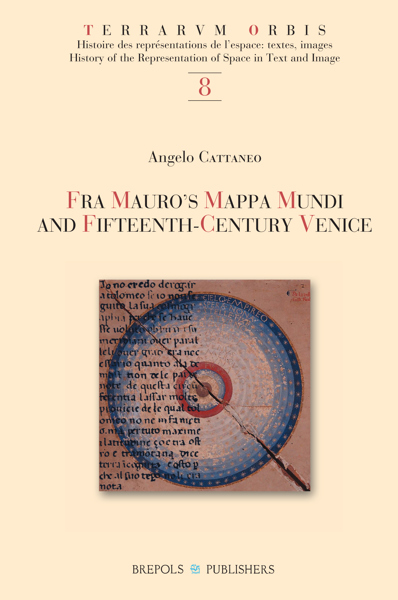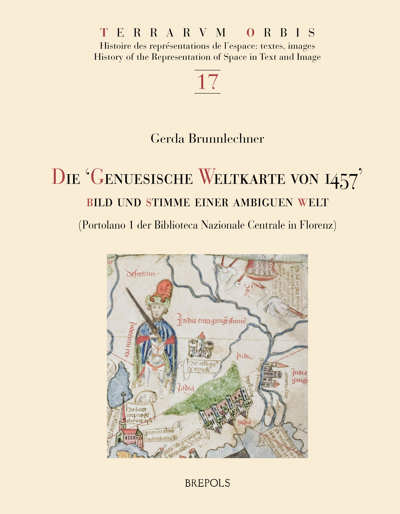
Catalan Maps and Jewish Books
The Intellectual Profile of Elisha ben Abraham Cresques (1325-1387)
Katrin Kogman-Appel
- Pages: 358 p.
- Size:210 x 270 mm
- Illustrations:122 col.
- Language(s):English
- Publication Year:2020
- € 130,00 EXCL. VAT RETAIL PRICE
- ISBN: 978-2-503-58548-2
- Hardback
- Available
This book describes the life of Elisa ben Abraham Cresques, known to many as the author of the Catalan Atlas, and focuses on the Jewish aspects of his fascinating career, his professional profile, and his scholarship.
« Avec son livre sur Elisha ben Abraham Cresques, Katrin Kogman- Appel a réussi la difficile gageure de recréer le milieu intellectuel et religieux de ce juif de Majorque, homme religieux, homme de cour, savant, calligraphe, enlumineur, cartographe, et au-delà de lui de tout un monde soumis à des influences non seulement juives, mais aussi chrétiennes et musulmanes, qui lui ont permis de réaliser ces oeuvres qui nous étonnent encore. » (Jacques Paviot, in Francia-Recensio, 3, 2021)
“Scholars will return to the chapters of this book for years to come, and although it is written for an academic audience and fulfills the highest standards in that regard, its arguments deserve to be brough to the wider public.” (Matthew J. Westerby, in The Medieval Review, 21.12.10)
“Bei dem vorliegenden Band muss schließlich die hervorragende Gesamtqualität erwähnt werden. Zu fast allen Manuskripten sind im Anhang zahlreiche farbige Bildnachweise zu finden, welche auch immer wieder einzelne Detailansichten hervorheben. Darüber hinaus liegt vom Katalanischen Atlas ein herausnehmbarer und faltbarer Druck bei, welcher die Nachvollziehbarkeit der gesamten Analyse Katrin Kogman-Appels entscheidend unterstützt. Auf diese Weise wird die vorliegende Studie von Kogman-Appel zu einer in sich gut strukturierten, detailliert recherchierten und plausiblen Analyse über die gesellschaftliche und wissenschaftliche Verortung Elisha Ben Abraham Cresques und seines Hauptwerkes, dem Katalanischen Atlas.” (Hanna-Barbara Rost, in TRUMAH, 25, 2022, p. 205)
“Katrin Kogman-Appel successfully demonstrates the chart’s unique status in medieval cartography, which is not transitional. The main achievement of the author is to highlight the chart’s uniqueness as a composite product of a Jewish cartographer who worked in an intercultural environment that developed in the western Mediterranean in the fourteenth century. Maintaining ambiguity was a guarantee of survival: this piece of wisdom was part of Jewish daily life in Majorca, and it was made manifest in the ecumenic chart.” (Mordechay Lewy, in Images, 15, 2022, p. 100)
“This book marks a milestone in the analysis and understanding of not only Hebrew manuscripts but also all cultural artifacts produced by Jews in the Iberian Peninsula. The sometimes difficult relations of interdependence between Jews and non-Jews, the cultural universe of the Iberian Jews, and the transmission and transformation of knowledge, whether within the family or in the courtly sphere, are combined in this magnificent book to offer us the keys to understand two cultural, textual, and artistic artifacts produced by a learned and skilled Jew from Mallorca in the fourteenth century. Catalan Maps and Jewish Books is essential to understanding the cultural history of the Jews of the Iberian Peninsula through the multifaceted work of Elisha ben Abraham Bevenisti Cresques.” (Javier del Barco, in Manuscript Studies, 7.2, 2022, p. 399)
Katrin Kogman-Appel holds an Alexander von Humboldt Professorship in Jewish Studies (2015–2020), which she took up at the University of Münster. A scholar of medieval Jewish book culture, she is the author of Illuminated Haggadot from Medieval Spain (2007), which won the Premio del Rey Prize of the American Historical Association in 2009. Her A Mahzor from Worms (2012) was a finalist of the National Jewish Book Award.
This book presents a small chapter in the intellectual history of the Jews of Majorca. Its key figure is Elisha ben Abraham Bevenisti Cresques (1325–1387) a cartographer in the service of King Peter IV of Aragon and a scribe and illuminator of Hebrew books. Elisha Cresques’ career evolves at a point in time when some of the most fascinating threads of methodological interests relevant to intellectual history meet. He emerges as a hub, so to speak, where mapmaking converged with scribal work, miniature painting with scientific knowledge, and the culture of a minority with that of the majority. How he was able to negotiate his patron’s expectations and his own cultural identity and frame them within the political, cultural, and religious discourses of his time is the subject of this book.
Preface
List of Illustrations
Introduction
1 Book Art for the Jewish Call – Charts for the Court
2 Collecting Books
3 Visualizing the Ecumene at Large
4 Filling in the Details
5 Political Space Between the Baltic Sea, the Atlantic and the Mediterranean
6 Imaging Islam in Africa and the Middle East
7 The Mongol Khanates
8 Mythical Space: Past and Future
Epilogue
Bibliography and Sources
Index
